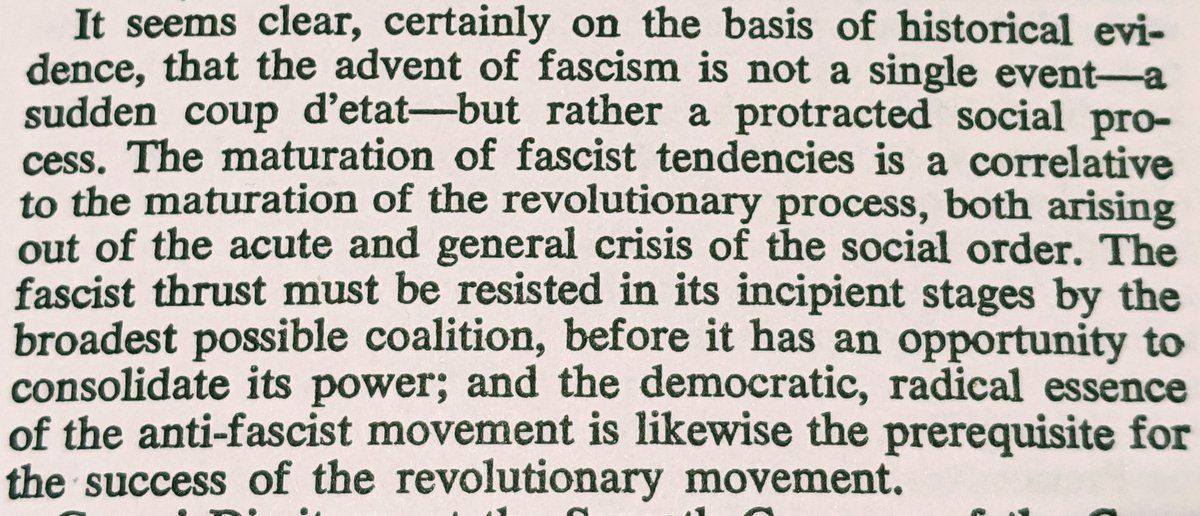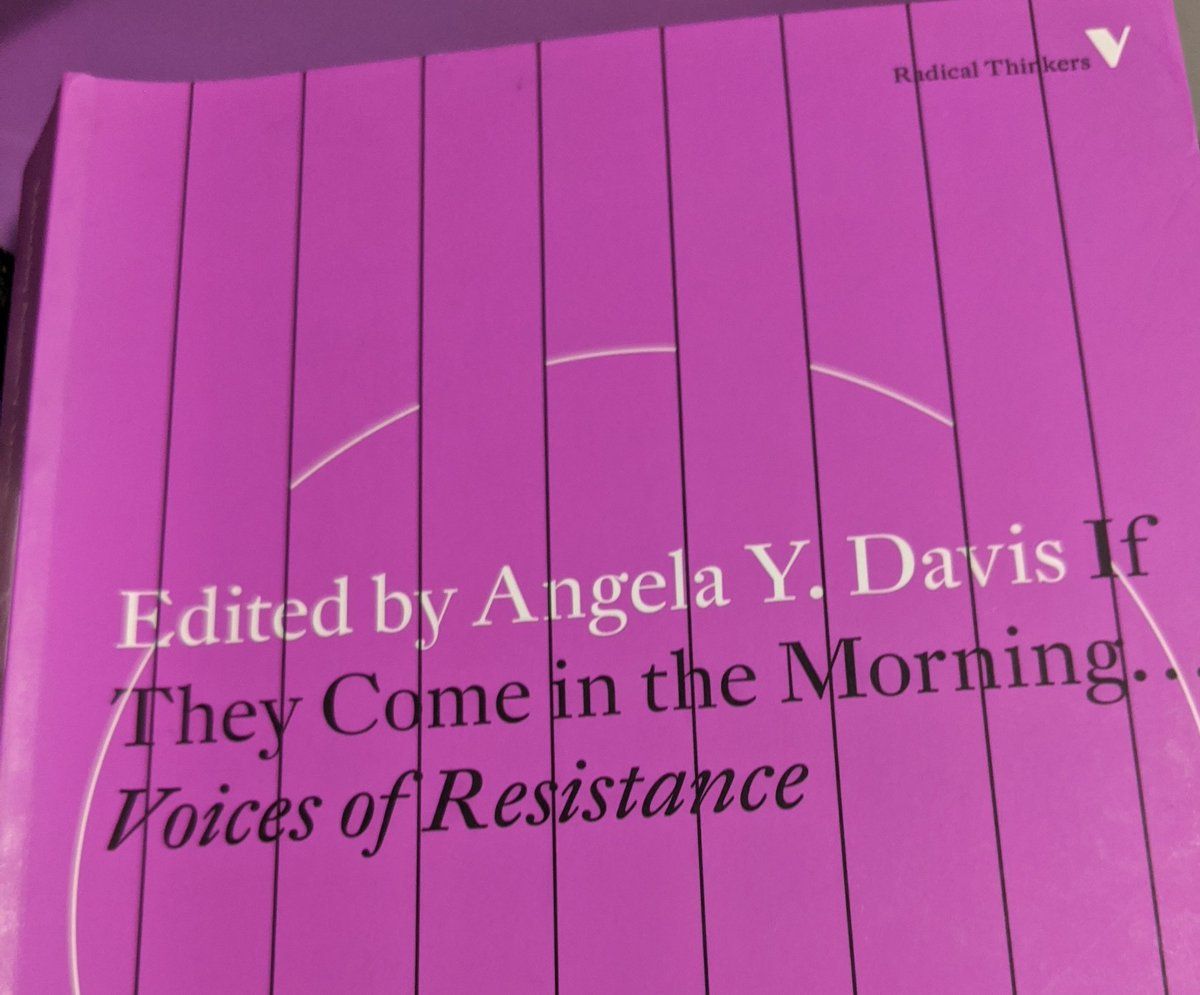-
"The maturation of fascist tendencies is a correlative to the maturation of the revolutionary process, both arising out of the acute and general crisis of the social order."
-
Davis and Aptheker distinguish between "fascist tendencies" and true fascism ("the triumph of the counter-revolution") when the state employs terror to dismantle popular movements.
-
Their analysis is interesting in how it describes several different decades, including our own. First it acknowledges that the 1920s/30s could have gone either way in places like Germany, Italy.
-
Second, it refuses defeatist ideas about how once fascism is on the horizon, the battle is lost. Just at a moment when assassinations (think Fred Hampton), mass arrests (May Day 1971) and political prisoners were on the agenda, they saw a pivotal moment, of threat & opportunity.
-
Third, this is the opposite of the Overton window. Mussolini AND Gramsci, Nixon and the Summer of Love, J Edgar and Martin Luther King, Trump and #MeToo and #BlackLivesMatter. W
-
We don't have to settle for no change to fight off disastrous change. Rather, they argue, the proto-fascist lashing out conceals weakness: "At such a moment, when the ruling circles must rely consistently on coercion rather than…legitimacy to govern."
-
Moreover, a narrow, cruel, mean-spirited politics from the rulers enables a broad humane alliance against it, "the broadest possible coalition" with a "democratic radical essence."
-
More so than thinking through this in terms of historical analysis, I'm interested in this in terms of narrative and possibility. Does our story of the present allow us space for an heroic turn around? Or does it teach us to settle for less or give up?
-
Do we put our focus on the storm clouds we confront or the fact that "Ever greater numbers of people are beginning to involve themselves in organized mass forms of struggle"?
-
If historical analogies are mostly a tool, do we find analogies that are levers for greater possibility for change, or do we teach one another that we are trapped in a dead end? Ultimately, we choose the stories we share. And the future is up to us.

